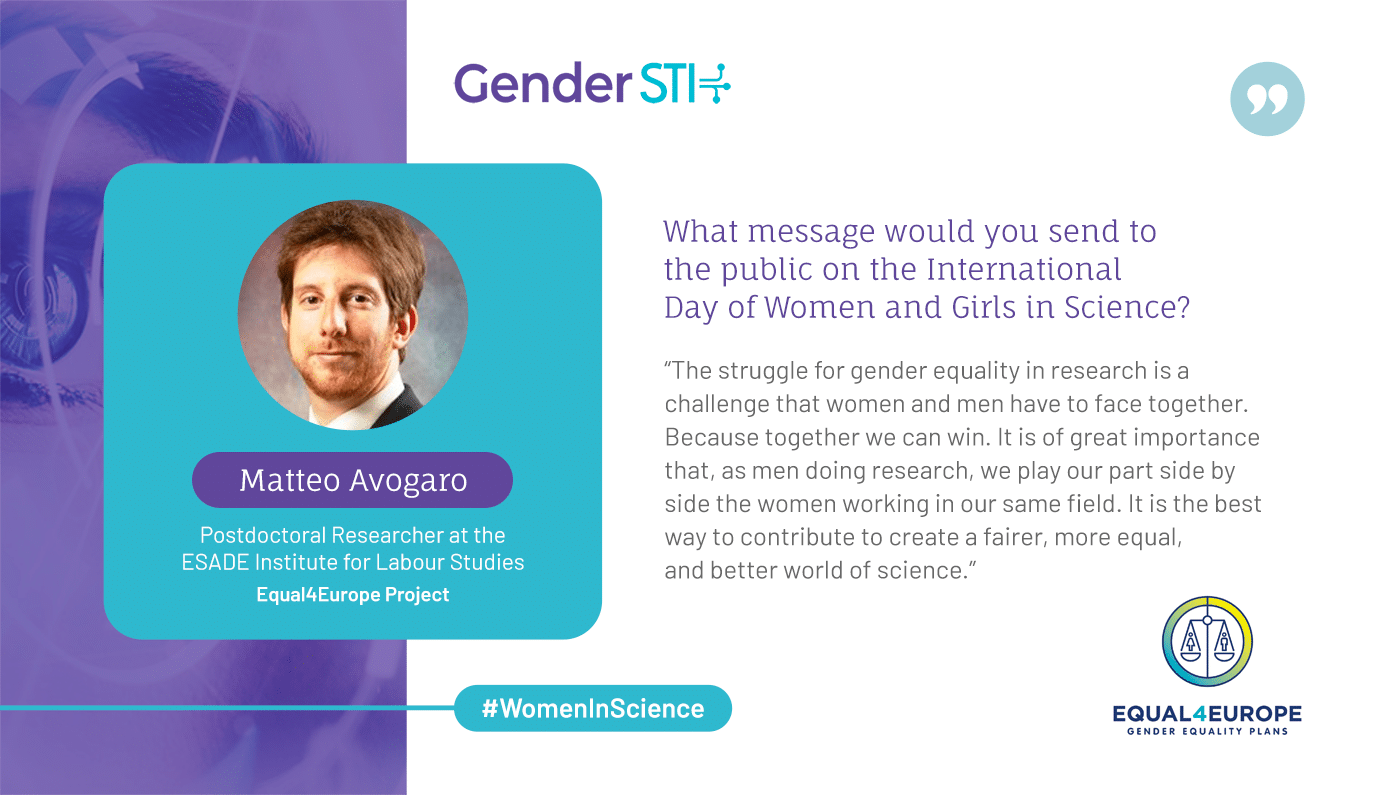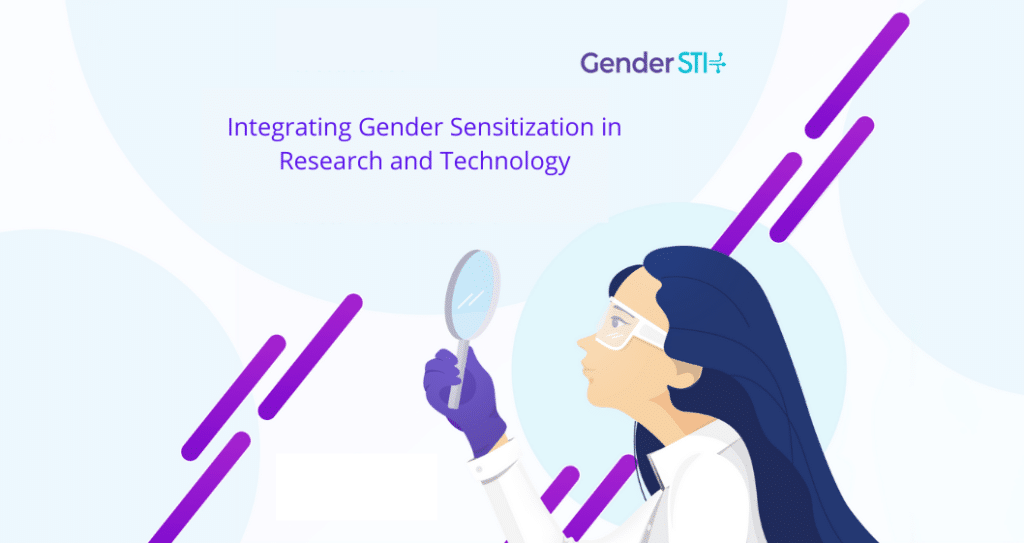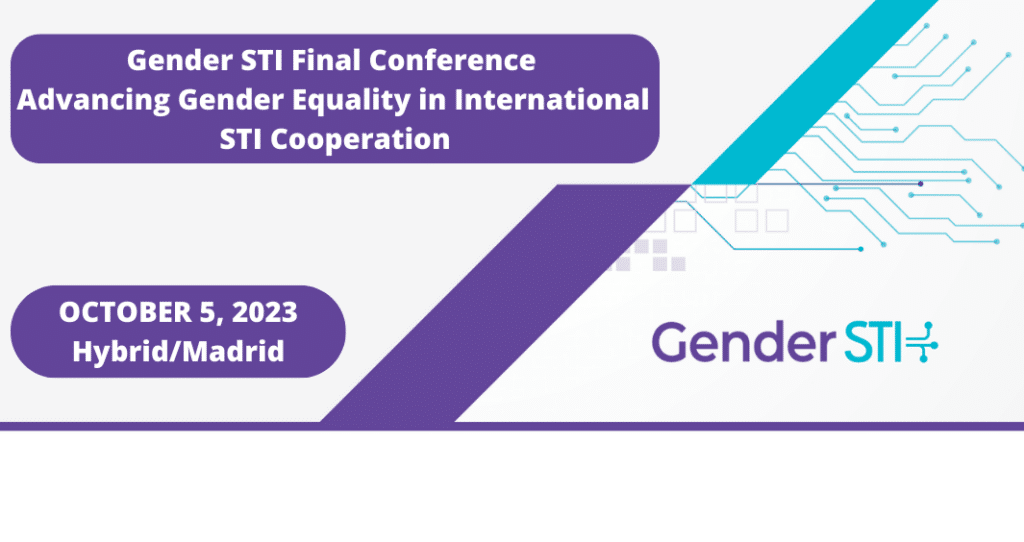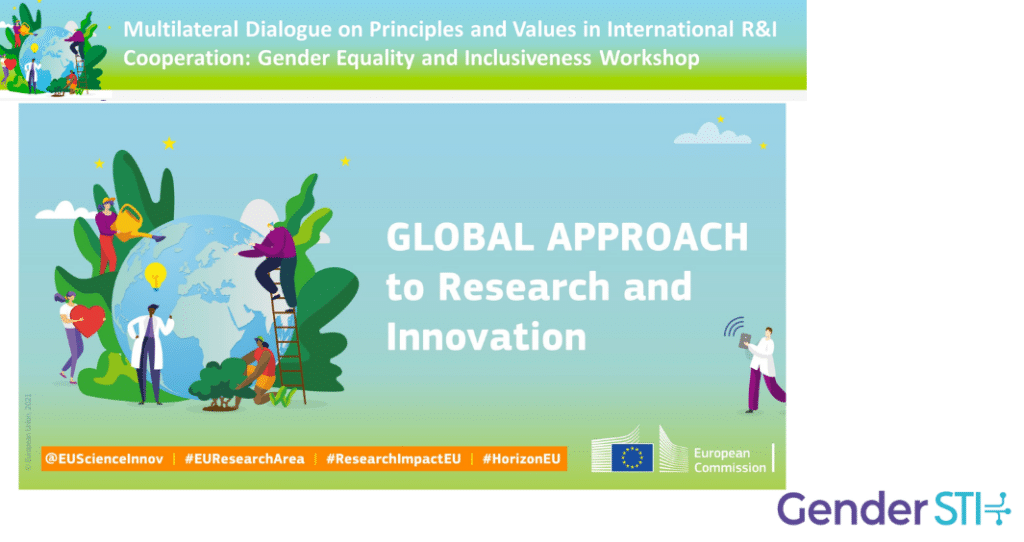Today, the world celebrates the International Day of Women and Girls in Science, which aims to promote full and equal access to and participation in science for women and girls. As part of this effort, Gender STI has launched its own #WomenInScience campaign. We talked to researchers and experts, both men and women, about why they got involved in science, what they think about current statistics on women researchers and what they think needs to be done to encourage more women and girls to pursue scientific careers.
In the fight for equality in science, women and men need to work together to break gender barriers. We need men scientists as allies, and we’re fortunate to count on many allies worldwide. One of them is Matteo Avogaro, postdoctoral researcher at the Esade Institute for Labour Studies, who points out that working in an environment where men and women are equally represented is good for research because it allows you to see different perspectives.
What is your job position and what science field do you work in? What does your job entail?
I am a postdoctoral researcher at the Esade Institute for Labour Studies and my field of research is labour law. As a postdoctoral researcher, I am mainly working on the H2020 Equal4Europe project, a research project funded by the European Commission which aims to increase gender equality in the European Research Area. My job mainly entails conducting qualitative and quantitative analyses, writing reports and academic articles, assisting my older colleagues in preparing surveys and interviews to get the raw data for our studies and, possibly, teaching in small courses or training sessions.
Beyond gender equality, my other research interests are related to the impact of technology on the labour market. I'm interested in strategies to enhance work-life balance, the evolution of industrial relations, and the protection of workers’ rights in new forms of labour, like work on platforms.
Why did you decide to pursue a career in science, and specifically in your scientific field?
I decided to pursue an academic career in labour law mainly because I believe in equality between people, and I think that law and knowledge are good instruments to affirm it. For these reasons, I am really pleased to be part of the Equal4Europe project and to contribute to the effort to increase gender equality in the European Research Area. Another element that led me to choose this job and this career was curiosity. If you are a curious person, doing research is one of the best ways to satisfy your desire to increase your knowledge of how something works, what there is at the basis of a certain phenomenon, or how something is regulated. I am honored to have the possibility to satisfy this curiosity by conducting research in an academic context, and for this reason I try to do my best in my job every day.
According to the United Nations, currently less than 30% of researchers worldwide are women. What do you think about that?
Creating better conditions for women desiring to pursue a career in research is one of the big challenges of our times. In addition, we must also address the gender gap and the gender pay gap in the whole labour market. Reaching a balanced presence of women and men in research is of course important for a matter of equality, to contribute to creating a world without discrimination. Moreover, according to my experience, having the possibility to work in a context in which women and men are equally represented helps you see different aspects of what you are studying. It opens your mind and improves knowledge. A more equal world of research is, therefore, also a way to provide research with better possibilities to improve our whole society.
What would you tell young girls and women who are interested in pursuing a career in science?
A career in science is a fantastic experience. But it can be even better if you pursue it while working with a network. Having colleagues that become points of reference, and even friends, is really important. It means having people to whom you can turn to for feedback, some advice or support, and that you can help in your turn; it allows you to grow together. It is having someone with whom you can exchange ideas, brainstorm, and even develop great projects that become reality. Work from the beginning to create a wide and trustworthy network. You will find that this is incredibly helpful to improve yourself as a scientist!
What message would you send to the public on the International Day of Women and Girls in Science?
The struggle for gender equality in research is a challenge that women and men have to face together. Because together we can win. It is of great importance that, as men doing research, we play our part side by side the women working in our same field. It is the best way to contribute to create a fairer, more equal, and better world of science.



